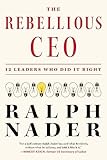The US Social Forum’s questionable players
Detroit is a city of high unemployment rates, empty neighborhoods, houses with boards over the windows and closed factories. It was once the crown jewel of the rust belt, home of the automobile engineering giants General Motors, Ford, and Chrysler – a booming industry that put countless citizens to work in the four thousand factories that dotted the area. But as the world modernized through the march of globalization, the global manufacturing economy became driven by cheap labor, resulting in the gradual close of a great many factories. Thousands were left unemployed and impoverished. Soon, the hundreds of closed schools gave way tens of thousands of empty homes, rampant crime, and a population that is 47% functionally illiterate – an urban wasteland crumbling away in degradation.
In the summer of 2010, something happened. From across the nation, droves of activists, speakers, and interested people descended upon the city to attend the US Social Forum (USSF), the American branch of the global World Social Forum. A “movement building process,” the USSF aims to bring people together for workshops, courses in grassroots fundraising, cultural exhibits, and assemblies to “provide space” in which to “strategize how to reclaim our world.” Anti-corporate activists, environmentalists, socialists and a vast array of leftists of every stripe met together, discussing how to build an alternative to the prevailing norm of globalized capitalism – “tear down poverty” to “build an alternative, solidarity economy.” The topics discussed ranged from the problems of modern day globalization to community outreach to the Palestinian-Israeli conflict in the Middle East.
Sitting on the USSF’s National Planning Committee, the administrative branch of the Social Forum, are two ardently pro-Palestinian organizations – the International Jewish Anti-Zionist Network and the US Palestinian Community Network. However, a strange anomaly can be found here; at the top of the National Planning Committee list sits the American Federation of Labor and Congress of Industrial Organizations (AFL-CIO), the largest trade union federation in the United States. While the Social Forum tosses around the idea of a Boycott, Divest and Sanction (BDS) movement aimed at Israel, hoping to pressure the country by targeting the nation’s exports, the AFL-CIO’s current president, Richard Trumka, has made clear his stance on the issue. Speaking at the 2009 Jewish Labor Committee awards dinner, Trumka said:
Given the traditions, the heritage, the commitment – and given the values – Jewish workers have always brought to the labor movement, I don’t think it ought to come as any surprise that the Jewish community here – and around the world – has never had a stronger ally than the AFL-CIO! And, tonight, let me tell you that, so long as I’m president, you will never have a stronger ally than the AFL-CIO! That’s why we’re proud to stand with the JLC to oppose boycotting Israel! Brothers and sisters, there is only one way we’re going to stop the violence in the Middle East – and it’s not by bashing Israel – it’s by supporting President Obama’s peace initiative! (( “Richard Trumka’s Remarks at October 2009 JLC Dinner,” Jewish Labor Committee. ))
The AFL-CIO has a long history of doing things that would seem contrary to the ideals of the US Social Forum. Under the hawkish presidency of George Meany the federation supported the Vietnam War on the grounds of anti-communism. Earlier still, the AFL-CIO’s international arm, the American Federation for Free Labor Development, provided training and funding to opponents of the democratically elected president of Brazil, Juan Bosch, who in two years would be ousted from power. ((Harry Kebler, “The AFL-CIO’s Dark Past Part 4: U.S. Labor Reps. Conspired to Overthrow Elected Governments in Latin America,” The Labor Educator, November 29, 2004.)) More recently, in the wake of Chavez’s tightening control of Venezuelan oil fields, the AFL-CIO worked with the State Department’s National Endowment for Democracy (NED) in organizing a massive general strike, alongside CTV, the country’s large labor union. The plans for the strike were drawn up in a closed-door forum, where CTV representatives met with the NED and AFL-CIO to “discuss the chances for a coup in Venezuela.” ((Katherine Hoyt, “Concerns Over Possible AFL-CIO Involvement in Venezuela Coup Led to February Picket,” Labor Notes, May 1, 2002.))
Throughout 1980s and 1990s, the top movers and shakers of the AFL-CIO were intimately intertwined with the leadership of the Social Democrats USA. By the time the labor union became affiliated with the Social Democrats, the large left-leaning organization had traded their commitment to building a participatory democracy for strangely neoconservative ideals, ranging from calling for aid to the Contra rebels in Nicaragua, to saber-rattling for regime change in Iraq, to unconditionally supporting Israel. The AFL-CIO, however, isn’t the only organization on the US Social Forum’s National Planning Committee to show support for American hegemony; listed after the AFL-CIO on the committee is Amnesty International, the global human rights advocacy organization. As Professor Francis A. Boyle, a former board member of the organization puts it:
Amnesty International is primarily motivated not by human rights but by publicity. Second comes money. Third comes getting more members. Fourth, internal turf battles. And then finally, human rights, genuine human rights concerns. To be sure, if you are dealing with a human rights situation in a country that is at odds with the United States or Britain, it gets an awful lot of attention, resources, man and womanpower, publicity, you name it, they can throw whatever they want at that. But if it’s dealing with violations of human rights by the United States, Britain, Israel, then it’s like pulling teeth to get them to really do something on the situation. They might, very reluctantly and after an enormous amount of internal fightings and battles and pressures, you name it. But you know, it’s not like the official enemies list. ((Dennis Bernstein, “Interview with Professor Francis A. Boyle” Covert Action Quarterly, No. 72, Summer 2002, pg. 9-12. ))
Funding a “smarter globalization”
One of the larger workshops held at the 2010 USSF was the “Historic Moment for Funding Social Justice Organizing in the 21st Century.” Attended by “community organizers, researchers, and a large number of foundation staff and board members,” the four-hour seminar primarily discussed “funding and how it impacts social justice work in a variety of formats, including small organizations.” ((Walter Davis, “2010 US Social Forum Reflections,” National Organizers Alliance, 2011.)) It was held by several large grassroots organization, along with the Funders Network on Transforming the Global Economy (FNTG), “an alliance of grantmakers committed to building just and sustainable communities around the world.”
The FNTG would certainly seem at odds with the purported ideals of the Social Forum, despite their rhetoric about sustainable communities. Their mission statement never overtly condemns the globalization movement, but focuses instead on how new and different approaches can be taken to make international, integrated capitalism more acceptable to its leftist critics. “A vital issue to consider is that many civil society organizations perceived to be “anti-globalization” and “anti-trade” are neither,” the FNTG states, before commenting that “we must deepen our understanding of these issues” to help “shape a globalization” that reflects the ethics and values of the malcontents.
In short, they advocate an economic globalization based in international trade and the capitalist business model that wears the aesthetics of social consciousness. One needs to look no further than several listed members of the FNTG to understand the motivations of the group. There is the Ford Foundation, whose goal is “making the world safe for capitalism, reducing social tensions by helping to comfort the afflicted, provide safety valves for the angry, and improve the functioning of government.” ((Ford Foundation president McGeorge Bundy (1966-1979), quoted in Michel Chossudovsky “‘Manufacturing Dissent’: the Anti-globalization Movement is Funded by the Corporate Elites” Centre for Research on Globalization, September 20, 2010. )) Then there is the Open Society Institute, the philanthropy vehicle of George Soros that helped organize disconnected youths into grassroots coalitions that installed pro-Western, capitalist regimes in Georgia and Ukraine. FNTG’s next partner, the Rockefeller Foundation, seeks to make international capitalism’s bitter medicine a bit sweeter with the softer, gentler “smart globalization.” It does this by not only giving money to activist groups, but also working to further the goals of globalized economic integration; the foundation provides funding for the Council on Foreign Relations, a pro-globalization think-tank that attracts politicians, businessmen, and media figures from around the globe.
These same criticisms can be applied to the US Social Forum’s international counterpart, the World Social Forum [WSF], which is entirely dependent on grants from the Ford Foundation for the continued existence of the program. One could argue that just because the forum receives money from active, capitalist-oriented grant-making foundations, it doesn’t mean that the stated intentions of building an “alternative globalization” are compromised. Unfortunately, this line of wistful thinking is far from the truth:
Remarkably, an International Council member of the WSF [World Social Forum] reports that the “considerable funds” received from these agencies have “not hitherto awakened any significant debates [in the WSF bodies] on the possible relations of dependence it could generate.” Yet he admits that “in order to get funding from the Ford Foundation, the organizers had to convince the foundation that the [Brazilian] Workers Party was not involved in the process.” (( “The Economics and Politics of the World Social Forum: Lessons for the Struggle against ‘Globalisation’,” Centre for Research on Globalization, September 5, 2010.))
The WSF’s charter states that the forum rejects any “reductionist views of economy, development and history.” By disavowing this approach, Marx’s entire critique of capitalism, conducted by examining the individual functions of the system’s parts, is rejected from the processes of the forum. This, in turn, leaves a space to debate not a post-capitalist world, but simply how to build upon the existing capitalist structure to better suit the demands of its dissidents. This seems to be strikingly in line with the intentions of the WSF’s initiators, the French NGO ATTAC – Taxation of Financial Transactions for the Aid of Citizens. With the slogan “the world is not for sale,” ATTAC’s position is not one anti-globalization per se, but simply the ‘smarter globalization’ of the Ford and Rockefeller Foundations. ATTAC sees the key to this goal being the use of the Tobin Tax – an international “general tax for financial transactions.” Other organizations or individuals who have shown interest in the Tobin Tax (named for the economist James Tobin, a former board of governors member for the Federal Reserve Bank) include the Ford Foundation, the Rockefeller Foundation, the AFL-CIO, George Soros, and Joseph Stigltz – the latter of which spoke at the 2004 World Social Forum in Mumbia, India. While the Tobin Tax will certainly give the appearance of a pro-active government willing to tackle big business, it leaves the central most components of both globalization and capitalism unchanged. The top corporations of the Fortune 500 will still rule over the markets – an added tax charge of a mere 0.5% on transactions (( “James Tobin: ‘The antiglobalization movement has hijacked my name,” Der Spiegel, September 3, 2001. )) will do nothing to alter the business models of the giants because they have the financial capabilities to cope with such a proposal.
Furthermore, in Tobin’s own words, this tax plan is not built to be contrary to globalized capitalism in the slightest. “I am an economist, and like most economists, I support free trade,” Tobin said in Der Spiegel interview in 2001. “I am in favor of the International Monetary Fund, the World Bank, and the World Trade Organization.” After stating that the “IMF has to be strengthened and broadened,” Tobin argues that the consortium of international financial organizations ought to have the power to prevent countries from engaging in protectionist trade policies: “the WTO ought to be able to prohibit the industrialised countries from blocking the imports of developing countries by putting up obstacles to trade.” (( “James Tobin: ‘The antiglobalization movement has hijacked my name,” Der Spiegel, September 3, 2001. )) For Tobin, the strengthening of these organizations is a must, for they are the organizations that would administer his plan, thus helping to maintain the status quo of the financial power in the world.
Co-opting Dissent and Ignoring the Problem
It is certainly a worrying overlap of organizations. Through the AFL-CIO and the assorted array of grant-making foundations, the anti-globalization left is fraternizing dangerously close with the same economic and political imperialists that they claim to be fighting. With the Ford Foundation’s desire to “provide a safety valve for the angry,” the Rockefeller’s calls for a “smarter globalization” and the World Social Forum’s banning of certain groups and viewpoints, this can be seen as nothing more than a corporate co-opting of the left. This tactic is nothing new. In 1966, Professor Carroll Quigley wrote about this same topic in his seminal opus, Tragedy and Hope: A History of the World in Our Time:
More than fifty years ago the Morgan firm decided to infiltrate the Left-wing political movements in the United States. This was relatively easy to do, since these groups were starved for funds and eager for a voice to reach the people. Wall Street supplied both. The purpose was not to destroy, dominate, or take over but was really threefold: (1) to keep informed about the thinking of Left-wing or liberal groups; (2) to provide them with a mouthpiece so that they could ‘blow off steam,’ and (3) to have a final veto on their publicity and possibly on their actions, if they ever went ‘radical.’ There was nothing really new about this decision, since other financiers had talked about it and even attempted it earlier. What made it decisively important this time was the combination of its adoption by the dominant Wall Street financier, at a time when tax policy was driving all financiers to seek tax-exempt refuges for their fortunes, and at a time when the ultimate in Left-wing radicalism was about to appear under the banner of the Third International. ((Carroll Quigley, Tragedy and Hope: A History of the World in Our Time, Gsg & Assoc., 1966, pg. 938.))
The tactic of cooption was utilized again during the Great Depression by President Franklin Roosevelt. With labor movements on the rise, and a sharp increase in the memberships of the socialist and communist parties, Roosevelt responded to this threat to the American system by “incorporating in his own rhetoric [into] many of their demands” and absorbing “leaders of these groups into his following.” ((Seymour Martin Lipset and Gary Marks, “How FDR Saved Capitalism,” Hoover Digest, January 30, 2001.)) After cutting off the heads of the leftist coalitions, and presenting the population with the sanitized corporate welfare package known as the New Deal, “Franklin Roosevelt succeeded in undercutting the growth of left-wing political movements” that made revolution appear imminent.
The “safety valve” aspects of this theory explains the repeated notions of “space” – the US Social Forum, the World Social Forum, and the FNTG all aspire to provide “space” for these ideas to foster and flourish. “Space” seems to have its roots in the concept of the Temporary Autonomous Zone (TAZ), first proposed by anarchist writer Hakim Bay. The TAZ would be a temporary space, free from the imposing constraints of the hierarchies of capitalist system– a momentary utopia where the individual can disassociate himself from the harsher realities of the global order. The problem with the TAZ concept is that the zone itself is illusionary; capitalism, exploitation and imperialism still persist outside its borders.
Furthermore, the illusion itself is integrated into the prevailing capitalist framework. The functionality of a commune in the modern world will still depend on goods manufactured in the capitalist production model, and if it’s an inner city commune, odds are that the water and electrical that its inhabitants use is provided by privatized companies. The chances are that a great deal of the attendees of the US Social Forum drove many miles to voice their disenchantment with globalization in cars made on foreign production lines by underpaid and exploited workers, their tanks filled with petroleum brought to them by imperialist wars and environmental plundering. The accountants of the World Social Forum are forced to become capitalist workers themselves, hunched over ledgers, busy balancing receipts for money bestowed upon them by their international capitalist grant-making institutions. Even as I sit here writing this my laptop is a result of capitalist production in some far off country, brought to me by nothing more than globalization.
It is almost impossible to break away from the global order to forge a new tomorrow and build a sustainable world that is better for its inhabitants. But what a great number of the left need to do is to begin to see beyond this illusionary world, to see that their temporary space is granted unto them by the ones that they are fighting, a safety valve to make sure that their efforts never go beyond mere rhetoric and the occasional instance of community empowerment. “Smarter globalization” is not the answer, for it still leaves workers exploited and nations ripped open, stripped of their assets and resources. The left has a great many numbers. They need to make their own means.










